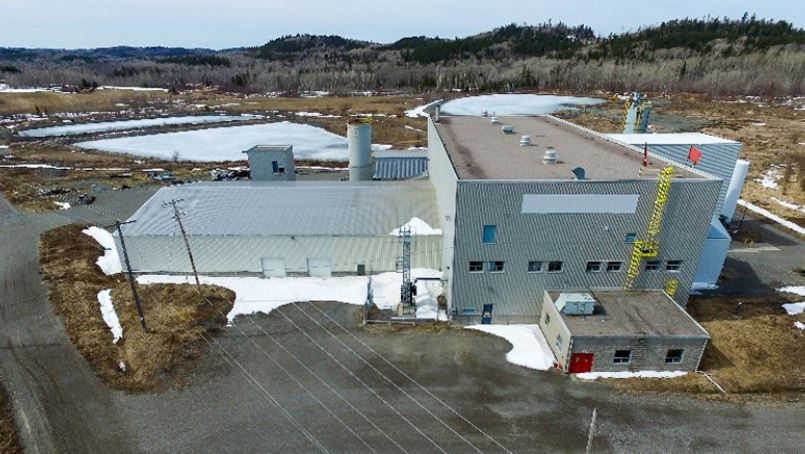Glencore pledges US$45 million for First Cobalt refinery

The First Cobalt Refinery near the town of Cobalt, northeastern Ontario. Source: First Cobalt Corp.
First Cobalt Corp. [FCC-TSXV; FTSSF-OTCQB; FCC-ASX] said Glencore AG, the Swiss commodities trading giant, has agreed provide a US$5 million loan to fund the recommissioning of the company’s Ontario cobalt refinery in North America.
Upon completion of a positive definitive feasibility study for a 55-tonnes-per day refinery expansion in the first quarter of 2020, and subject other terms and conditions, Glencore is prepared to advance an additional US$40 million to recommission and expand the refinery, said First Cobalt in an August 26, 2019 press release.
First Cobalt shares advanced on the news, rising 8.0% or $0.01 to 13.5 cents on volume of 967,581 shares traded. The shares are trading in a 52-week range of 12 cents and 49 cents.
First Cobalt said the US$5 million loan from Glencore will allow it to assess the suitability of the First Cobalt Refinery to treat Glencore material under a long-term supply agreement and to produce cobalt sulfate for the North American electric vehicle market
Phase two of the work plan envisions a recommissioning of the refinery at 12 tonnes per day in late 2020. Phase 3 would entail an expansion to 55 tonnes per day in 2021, using the existing site buildings and infrastructure.
A scoping study has previously estimated that if the First Cobalt Refinery operated at 55 tonnes per day, it could produce 5,000 tonnes of contained cobalt annually in sulfate, assuming a cobalt hydroxide feed, grading 30% cobalt.
First Cobalt is concluding a request for proposal (RFP) process for the feasibility study, metallurgy and environmental work with a view to commencing field work in September.
First Cobalt is the largest land owner in the historic Cobalt, northeast Ontario region. The company controls over 10,000 hectares of prospective land and 50 historic mines as well as a mill and a facility that it has described as the only permitted cobalt refinery in North America capable of producing battery metals.
Its Kerr Lake area properties include the past producing Juno, Drummond, Kerr Lake, Lawson and Conisil mines, all of which operated primarily as silver mines.
First Cobalt recently moved to enhance its position as a pure-play North American cobalt company by acquiring all of the issued and outstanding shares of US Cobalt Inc. The acquisition positioned First Cobalt as a leading non-Democratic Republic of Congo (DRC) cobalt company with North American projects located in close proximity to infrastructure as well as electric vehicle and technology hubs such as Michigan and California.
The combined entity has projects in Ontario and Idaho, which, once they reach the production stage, could be major cobalt suppliers for the electric vehicle market, which now depend mostly on supply from the DRC.
News of the latest Glencore agreement comes after Cobalt recently said it has successfully produced a battery grade cobalt sulfate.
“We are delighted to be working with Glencore to bring a domestic supply of battery grade cobalt to the North American market,” said First Cobalt President and CEO Trent Mell. “Subject to results achieved over the next six months, both parties would like to target first production in late 2020 and then commission an expanded 55 tpd facility in 2020,” he said.
“Cobalt prices have increased considerably over the past few weeks and the outlook for the electric vehicle market remains exceptionally strong.”
The First Cobalt Refinery is located in the Canadian Cobalt Camp, about 600 kilometres from the U.S. border. The facility is a hydrometallurgical refinery and has the potential to produce either cobalt sulfate for the lithium-ion battery market, or cobalt metal for the North American aerospace industry or other industrial military applications.
First Cobalt’s other flagship asset is the Iron Creek Cobalt project in Idaho. The project has an inferred mineral resource of 26.9 million tonnes, grading 0.11% cobalt equivalent, or an alternative underground only scenario of 4.4 million tonnes of grade 0.3% cobalt equivalent.
